Iran Hires Criminals To Kidnap, Murder Opponents Abroad: Washington Post
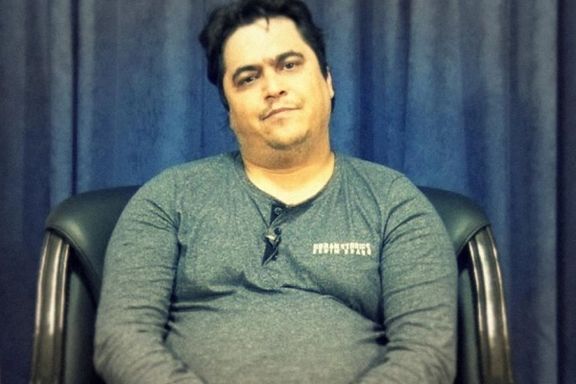
The Washington Post says the Islamic Republic of Iran is beefing up its plans to kidnap and kill opponents abroad with the help of gangsters and criminal groups.

The Washington Post says the Islamic Republic of Iran is beefing up its plans to kidnap and kill opponents abroad with the help of gangsters and criminal groups.
The Washington Post said in an article on Thursday, that the expansion of the Islamic Republic's “terror and kidnapping plots” has worried officials in Western countries.
The article is based on government documents and interviews with 15 officials in Washington, Europe and the Middle East, who spoke on the condition of anonymity to discuss sensitive information.
It adds that the tempo of the plots has significantly increased in the past two years, and they are among the most ambitious and far-reaching in recent memory, according to the officials and documents.
The paper goes on to quote officials that the Islamic Republic’s intelligence and security services depend largely on proxies to carry out their plans, “offering hundreds of thousands of dollars to jewel thieves, drug dealers and other criminals in murder-for-hire schemes.”
The Revolutionary Guard Intelligence Organization and the IRGC Quds Force have been mentioned as two main actors in designing these plots.
The Iranians’ recruitment of agents appears as varied as the geographic distribution of their targets.
That hands-off approach probably caused some operations to fail, the officials said, as plots have been disrupted — and, in some cases, the hired hit men appear to have gotten cold feet and never carried out their orders.
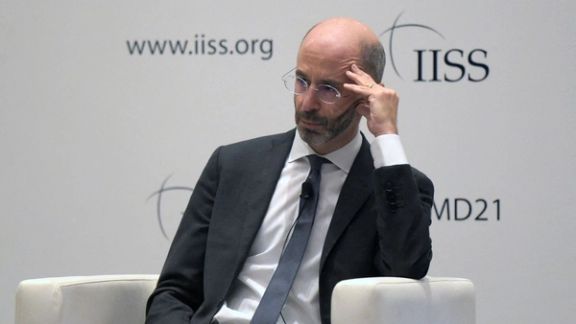
US Special Envoy for Iran Robert Malley says President Joe Biden is prepared for a military option to prevent Iran from acquiring a nuclear weapon in case sanctions and diplomacy fail.
During an interview with Foreign Policy’s podcast Playlist released on Wednesday, Malley said that the US and Iran came very close to reaching an agreement to revive the 2015 nuclear deal – or the Joint Comprehensive Plan of Action (JCPOA) -- many times in the past two years, the latest of which was in August, but each time Iran stepped back and came up with new demands that often had nothing to do with the nuclear talks.
“We'll have the sanctions, pressure and diplomacy. If none of that works, the President has said, and, as a last resort, he will agree to a military option because if that’s what it takes to stop Iran from acquiring a nuclear weapon, that’s what will happen. But we’re not there," he said.
Defending the Biden administration’s efforts to keep diplomacy as an option and criticizing the Trump administration for its maximum-pressure campaign, he said, “We owe it to ourselves to have an honest examination of how sanctions work and how they don’t work.”
The Iranian system as a whole is divided, and not yet concluded whether they really want to come back to the deal, and so each time Tehran was presented with a deal, even about the deals that were considered fair by other parties such as Russia and China, Iran was the one that walked back.
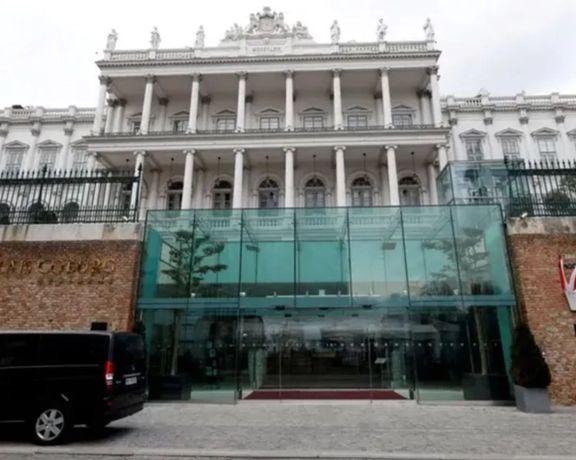
“Iran has rejected countless opportunities to come back to the deal... We are prepared for a world with the JCPOA and without the JCPOA. We’ve continued to put pressure on Iran... We made sure there are sanctions for their support for terrorism, their human rights violations, for their ballistic missile program and for their nuclear program,” he added. “The JCPOA is not on the agenda because of Iran’s position, and we’re continuing with our policy to respond to all of Iran’s destabilizing activities.”
Malley also said reviving the deal would be dead when the non-proliferation benefits of the deal do not justify or warrant the sanctions relief that the US is ready to offer, emphasizing that the US focus and energy are not on the deal. Currently, the focus is on what is happening in Iran and its support for the Russian invasion of Ukraine.
He also talked about many troubling issues emanating from Iran, saying the US supports aspirations of the Iranian people to achieve the fundamental rights and freedoms that all peoples across the globe should enjoy. “We are mobilizing international attention, putting the spotlight on what’s happening in Iran. It’s very important that the world know at a time when the Iranian regime is trying to hide what’s happening and to distort what’s happening,” he said.
The administration has also put the spotlight on developments in Iran by sanctioning those up and down the chain who are violating the basic rights of the Iranian people, “whether it’s a top leadership or whether it’s an anonymous person in a prison,” Malley noted. “The world should know who is behind that repression.”
He also said Washington is pushing for measures against the Islamic Republic in international bodies, mentioning the resolution at the UN Human Rights Council and the move to kick out Iran from the UN Commission on the Status of Women. “It’s an aberration, a complete anomaly, that Iran would be on the commission that is supposed to defend the rights of women when they are repressing them,” he added.
The US will continue to voice its support for the Iranians who are protesting for their rights, he reiterated, saying that “it's an extraordinary page in Iran’s history that’s being written right now.”
Praising “the courage, the determination, the persistence and the creativity of Iranians, particularly women and girls,” Malley said “we’re not going to be the authors; we can be there to express support for the fundamental rights of Iranians. This page will be written by Iranians themselves. It won’t be written in Washington, in London or anywhere around the globe other than Iran.”
Also on Wednesday, The US secretary of state says that the Islamic Republic has a deeply incorrect understanding of its people and is trying to blame others for the current protests.
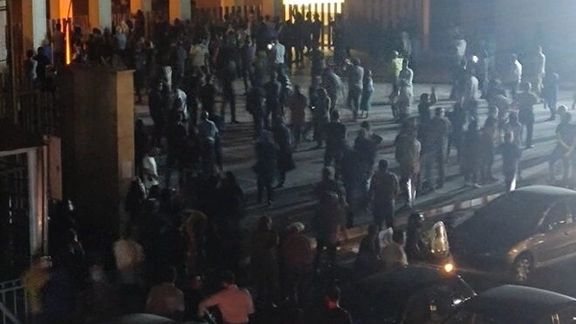
Despite repeated denials by IRGC's Fras news agency about a recent hack of its data servers, Iran's judiciary has started an investigation into damaging leaks.
Prosecutor General of Tehran Ali Alghasi-Mehr said on Wednesday that the probe into the cyberattack against Fars news, a cultural propaganda machine with close links to Iran’s Revolutionary Guard, is because a significant database of personal information of journalists and employees has been leaked.
However, it seems that the investigation has been launched because the authorities are not sure what has been hacked and what database has been breached.
A new word has been coined to refer to the large amount of data leaked from the hack: Farsgate.
A 123-page document, a copy of which Iran International obtained, is among the material the hacktivist group Black Reward uncovered. The document which includes both hearsay and excerpts from domestic and foreign-based Persian media was made in one copy only for the eyes of the IRGC chief commander Hossein Salami. Earlier in the week, Black Reward also released some audio files from a meeting between Qasem Qoreyshi, the deputy commander of the paramilitary Basij and media representatives.
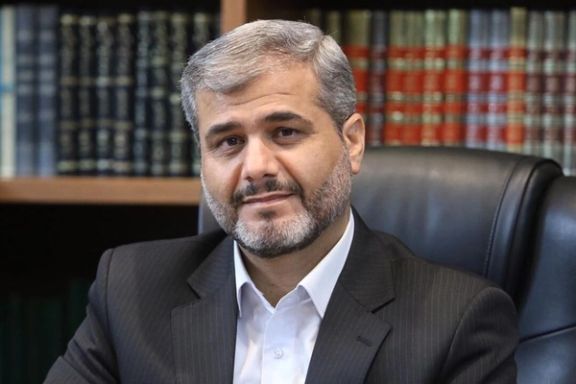
Black Reward announced on Friday, November 25, that it had attacked the database of Fars News Agency claiming that it deleted nearly 250 terabytes of data from all the servers and computers of the website and obtained confidential bulletins sent by the news agency to the office of the Supreme Leader Ali Khamenei. The report revealed a lot of recent orders by Khamenei about the ongoing protests that have engulfed the country since mid-September following the death of the 22-year-old Mahsa (Jina) Amini in the custody of morality police. Now, after several batches of information were leaked to the media, the authorities have started a damage control campaign to seize back the narrative, as most of the data prove that the Islamic Republic is frustrated and weary over its inability to end the protests.
The secret reports also revealed that most Iranians are getting ready for a revolution in the country as the popularity of the regime has dwindled, even among those considered supporters of the Islamic Republic. According to the documents, the level of dissatisfaction is so high that Khamenei has ordered some fundamental change in the structure of the regime in order to prevent a collapse.
The reports came as the protests in the country show no sign of ending and the movement has been spreading at universities and turning into strikes of employees in the industrial and services sectors, such as truckers.
While Iranian universities have turned into a battleground for antigovernment protests, students and professors in more than 150 universities around the world held events in support of the protests in Iran.
Meanwhile in Iran, Rasoul Jalili, the president of Tehran’s Sharif University of Technology, said on Wednesday that the university has increased its security staff by recruiting forces from private security companies. The measure is probably aimed at silencing those who criticize the university for allowing government security forces – especially the IRGC’s Basij paramilitary forces – to enter the campus to crack down on student rallies and sit-ins. If the measure proves successful, it can serve as a model for other universities to clamp down on students.
While Iranians have planned to hold three days of nationwide protests next week – 5-7 December – strikes by employees of industrial factories and truckers have injected fresh blood to the uprising.
Truck drivers and owners in several cities such as Esfahan, Bandar Abbas, Qazvin, and Kermanshah as well as many other western cities refrained from moving goods in support of the protests and strikes by industrial workers. Many people on social media describe the strike by the truckers as a significant blow to the Islamic Republic since it has the potential to cripple the economy. Some people say, “the truckers are leading the revolutionary uprising.”
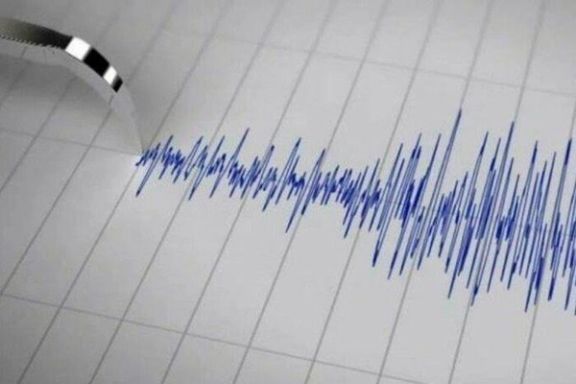
An earthquake of magnitude 5.7 has struck the southern Iranian Hormozgan Province.
Iranian state TV reported that rescue teams are dispatched to the quake-hit area in Bandar Lengeh adding that no casualties reported.
The quake was felt in the United Arab Emirates, the European-Mediterranean Seismological Centre (EMSC) said.
The quake was at the depth of 15 kilometers hitting an area 57 km northeast of Bandar Lengeh.
Iran is crisscrossed by major geological fault lines and is one of the most earthquake-prone countries in the world because it is located where the Arabian, Indian, and Eurasian tectonic plates meet.
Iran has had a terrible history of massive earthquakes in recent decades, with some killing up to tens of thousands of people and causing billions in damages, such as the magnitude 6.6 quake in Kerman province in 2003 that killed 31,000 people and flattened the ancient city of Bam.

The Islamic Republic has sentenced four people to death for what the judiciary calls “cooperating with the Israeli intelligence service and committing kidnappings.”
Iran’s Mizan News Agency, which is affiliated with the Judiciary, said Wednesday that the four, who had been arrested back in June, have been “destroying private and public property and obtaining fake confessions.”
The Islamic Republic has long accused arch-enemy Israel of carrying out covert operations on its soil. However, it has not provided evidence to prove its claims against those who received the death penalty. Iran’s judiciary never holds such trials transparently and it is not clear if such trials have indeed been held.
Throughout the years, due process has not been implemented during political and security trials while the Islamic Republic often accuses Israel and the West of having spies in the country.
This time the identities of the accused have been announced, alleging that “with guidance from the Israeli intelligence service, this network of thugs” were committing crimes.
Israeli is believed to have been behind assassinations and acts of sabotage against Iran’s nuclear facilities, but no one was ever put on trial for these incidents.
On Wednesday, three other people were handed prison sentences of between five and 10 years for alleged crimes such as acting against national security and possessing illegal weapons.
International community and human rights organizations have repeatedly expressed concerns about Islamic Republic’s detentions, sham trials, and the death sentence for people.
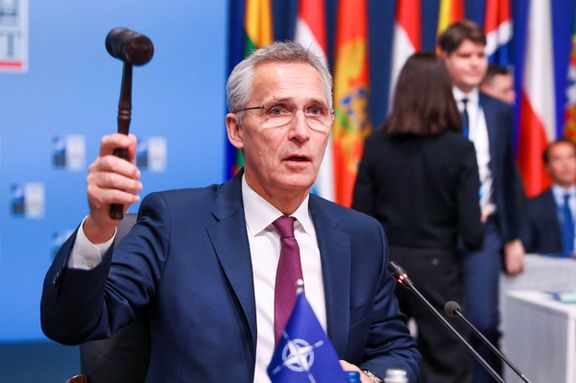
NATO has warned the Islamic Republic that it should not provide Moscow with arms and ammunition in its war against Ukraine.
At a meeting of foreign ministers of the defense alliance’s members in Bucharest on Tuesday, NATO Secretary-General Jens Stoltenberg said Russia has asked Iran to provide it with weapons because it was “running low on ammunitions.”
“We are saying very clearly that no country should support Russia’s illegal war, and therefore, Iran and no other country should provide Russia with missiles, drones or anything else that can help them to continue this brutal war of aggression against Ukraine,” added Stoltenberg.
He further noted that Iran and no other country should provide Russia with “missiles, drones or anything else that can help them to continue this brutal war of aggression against Ukraine.”
Elsewhere in his remarks, Stoltenberg stated that Vladimir Putin's brutal invasion of Ukraine is failing in Ukraine.
Russia has been using Iranian drones in its air attacks against the Ukrainians. In October and November, it targeted Ukraine’s civilian energy infrastructure, plunging it into blackouts as the winter cold has begun across the country. Amid international outcry over the Islamic Republic’s supply of drones for the Russian invasion, Ukrainian President Volodymyr Zelenskiy told a meeting of UN security council November 23, that the attacks are “an obvious crime against humanity” adding that Kyiv would put forward a resolution condemning “any forms of energy terror”.